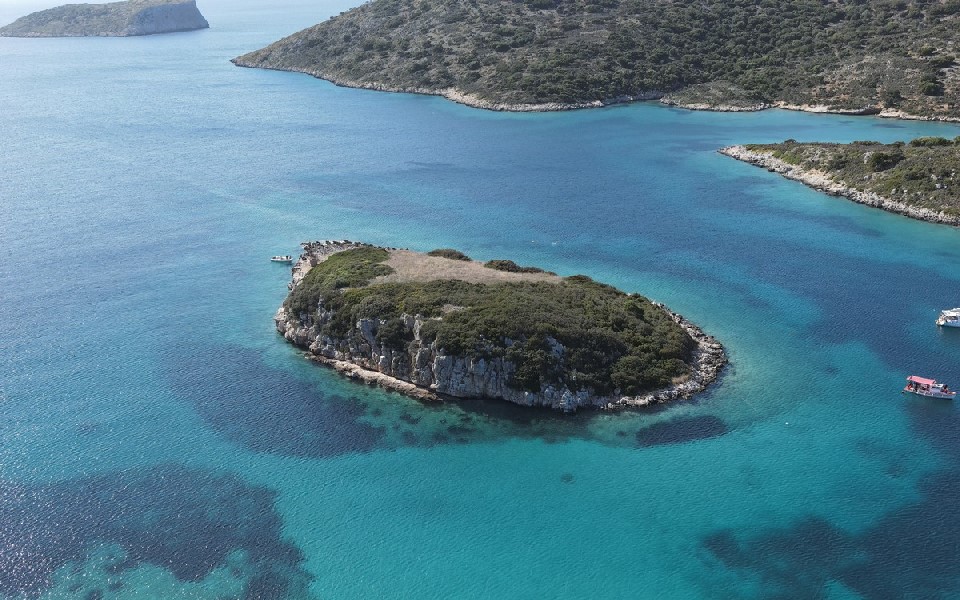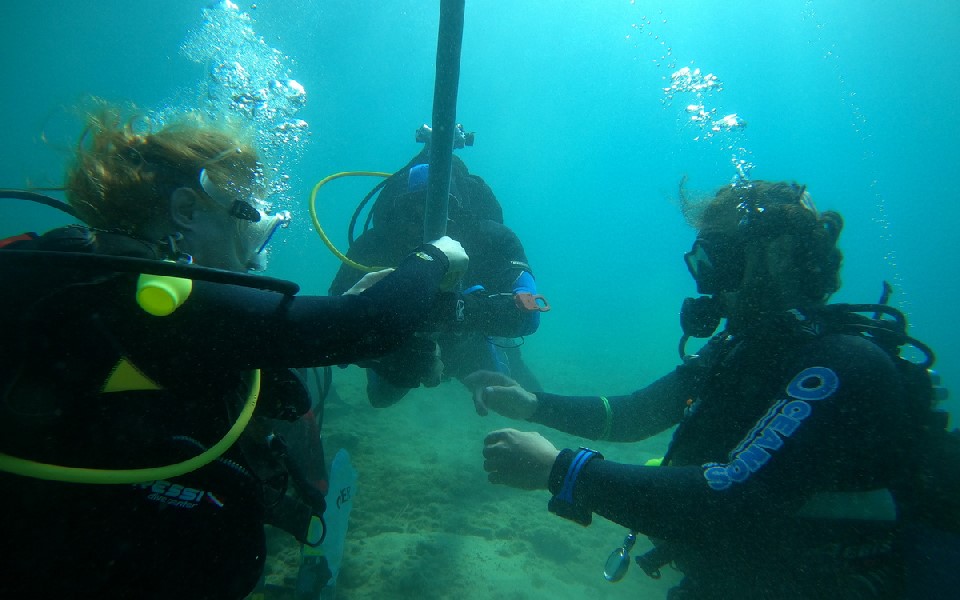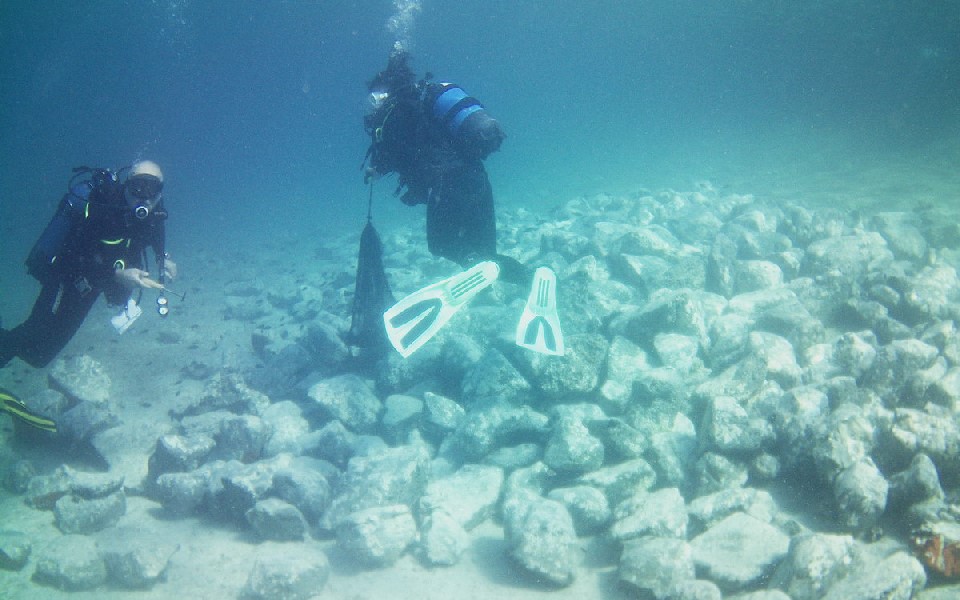Greece’s Ministry of Culture has announced the completion of the first season of underwater archaeological research in Kyra-Panagia Bay, north of the Sporades island of Alonissos.
The exploratory survey, conducted by a research team from the Aristotle University of Thessaloniki led by Professor Nikos Efstratiou, and in collaboration with the Ministry’s Ephorate of Underwater Antiquities, investigated the remains of a sunken Neolithic (“New Stone Age”) settlement, dated to the late 7th millennium BC.
It is hoped that the analysis of the initial finds will shine a light on the first agricultural groups to permanently settle Greece – among the first farmers to arrive in Europe.

© Hellenic Ministry of Culture and Sports / Ephorate of Underwater Antiquities
The main objective of the exploratory survey was to record the extent of the site, gradually inundated over the millennia by sea level rise. Aside from recording visible architectural remains on the seabed and individual artifacts, the team assessed the area for future systematic excavation.
Working at depths of 5-7m, the divers recorded a number of archaeological features and artifacts, including stone walls and pottery. It is anticipated that a preliminary excavation season will take place later in 2022.

© Hellenic Ministry of Culture and Sports / Ephorate of Underwater Antiquities
Future underwater research at Agios Petros, the earliest submerged settlement thus far recorded in the Aegean, is expected to highlight important aspects of life for the first farming communities in Greece, and their ability to navigate between islands.
The research was sponsored by Marco Bellacci (Markos Estate, Alonissos) and Merck Merkuriadis (Hipgnosis Songs Fund, UK).












